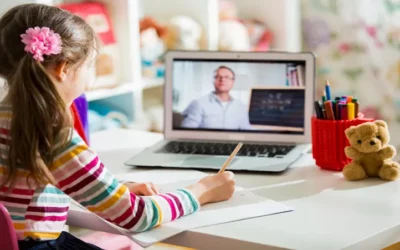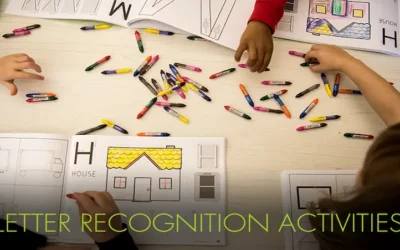In a world that is constantly evolving, the importance of educational guidance cannot be overstated. The choices we make in our educational journey have a profound impact on our personal and professional lives. Whether it’s selecting the right course of study, pursuing a fulfilling career, or nurturing our personal development, the decisions we make can shape our future in significant ways.
Educational guidance serves as a compass, helping individuals make informed choices at every crossroad of their educational expedition. From academic achievements to career aspirations and personal growth, it provides invaluable support and direction. In this article we will delve into the multifaceted significance of educational guidance, exploring its historical roots, modern interpretations, and the vast scope it encompasses.
Table of contents
Understanding Educational Guidance

What is Educational Guidance?
1. Historical Perspective: Educational guidance has deep historical roots that extend back to ancient civilizations. In those times, wise mentors and philosophers played a crucial role in imparting knowledge and guiding individuals towards educational enlightenment. Fast forward to the modern era, and educational guidance has undergone a transformative evolution. Today, it has evolved into a structured and systematic process, meticulously designed to aid individuals at various stages of their educational journey.
2. Modern Interpretation: In the contemporary landscape, educational guidance has expanded its horizons to encompass an extensive array of services and resources, tailored to meet the diverse and ever-evolving needs of both students and professionals. This broadened scope not only addresses academic concerns but also embraces the intricacies of career planning, personal development, and well-being. It reflects a holistic approach that recognizes the multifaceted nature of modern education, and the myriad choices individuals must navigate to succeed in an increasingly complex world.
Educational guidance plays a pivotal role in child development, as it provides structured support and resources to help children reach their cognitive, emotional, and social milestones while navigating their educational journey.
The Scope of Educational Guidance
1. Academic Guidance: This facet of educational guidance serves as a valuable resource for students, empowering them to excel in their academic pursuits. It goes beyond conventional teaching by offering tailored support in a range of areas, including subjects where students may require additional assistance, effective study techniques to optimize learning, and crucial time management skills to balance academic responsibilities efficiently.
2. Career Guidance: Career counseling is a vital component of educational guidance, dedicated to helping individuals make well-informed and strategic career decisions. Through this process, individuals receive expert guidance in assessing their unique set of skills, identifying their deepest interests, and clarifying their career aspirations and goals. By carefully evaluating these factors, career counselors play a pivotal role in aligning an individual’s talents and passions with the right career path, ultimately leading to greater job satisfaction, personal fulfillment, and professional success.
3. Personal Development: Educational guidance extends its influence beyond academics and career planning, fostering holistic growth by nurturing a spectrum of essential life skills. This comprehensive approach recognizes that education is not solely about acquiring knowledge but also about developing individuals into well-rounded and capable human beings.
Educational guidance plays a crucial role in facilitating career growth by helping individuals make informed academic and vocational choices that align with their strengths and aspirations.
The Need for Educational Guidance

Educational Challenges
1. Academic Pressure: In today’s educational landscape, students often find themselves grappling with intense competition and formidable academic demands. The pressure can be overwhelming, impacting their mental well-being and academic performance. However, educational guidance steps in as a vital support system, providing students with a repertoire of strategies to effectively cope with this stress while simultaneously excelling academically.
2. Career Ambiguity: Career counselors provide valuable insights into current industry trends, emerging job sectors, and the skills and qualifications in demand. By bridging the gap between individual career goals and the practical requirements of the job market, guidance ensures that individuals make informed decisions about their career paths. Ultimately, this alignment between aspirations and market realities is pivotal in fostering career satisfaction and success in an environment where adaptability and informed choices are paramount.
Educational games for kids can be a valuable tool in providing interactive and engaging educational guidance, helping children explore various subjects and develop essential skills while having fun.
Psychological Well-being
1. Stress and Anxiety: Educational guidance plays a crucial role in promoting mental well-being by providing individuals with the necessary tools and strategies to manage stress and anxiety effectively. In today’s fast-paced and high-pressure educational environments, students and professionals alike often grapple with overwhelming levels of stress. Educational guidance steps in as a valuable support system, offering techniques to mitigate stressors and nurture mental well-being.
2. Mental Health: Educational guidance goes beyond academics, actively addressing emotional challenges and providing invaluable support. This holistic approach contributes significantly to better mental health outcomes by fostering emotional resilience and well-being. By recognizing and addressing emotional needs, guidance professionals help individuals navigate their educational and personal journeys with greater mental strength and positivity.
Selecting thoughtful educational gifts for kids can be a way to support their educational guidance, as these gifts can inspire curiosity and a love for learning, reinforcing the importance of education in their lives.
Societal Benefits
1. Economic Impact: Educational guidance plays a pivotal role in ensuring that individuals make informed career choices that align with the ever-changing economic landscape. By guiding individuals towards careers that are in demand and align with market realities, educational guidance not only benefits individuals but also fosters economic growth and stability at a societal level.
2. Social Harmony: Informed career choices, facilitated by educational guidance, have a profound societal impact. They act as a potent antidote to unemployment and contribute to narrowing societal inequalities, ultimately fostering a more harmonious and equitable society.
Educational Guidance Models

Counseling Models
This career guidance model places a strong emphasis on the crucial alignment between an individual’s innate traits and skills and the career paths they choose to pursue. It underscores the understanding that career development is not a static event but rather an ongoing and evolving process, intricately tied to personal growth and development. By recognizing and nurturing one’s natural abilities, interests, and passions, individuals can make more informed career choices that lead to greater job satisfaction and success. This approach acknowledges that careers are not one-size-fits-all and encourages a dynamic exploration of diverse opportunities throughout one’s professional journey.
Holistic Approaches
The key to achieving success lies in identifying and leveraging an individual’s strengths while placing their unique needs and aspirations at the very core of the guidance process. This personalized approach acknowledges that each person possesses a distinct set of talents and desires, which, when harnessed effectively, can lead to fulfilling and prosperous career journeys. By recognizing and nurturing these inherent strengths and aligning them with personal aspirations, individuals can navigate their professional paths with greater purpose and satisfaction.
Incorporating stress management for kids techniques into educational guidance can equip them with essential life skills, enabling them to cope with academic and personal challenges more effectively and fostering their overall well-being.
The Process of Educational Guidance
To provide effective career guidance, it’s essential to understand the unique needs and challenges faced by the individual seeking assistance. Collaboratively, with the individual, set clear academic and career goals that align with their aspirations and capabilities. This process involves a thoughtful evaluation of their current skillset and potential areas of growth. Once the goals are defined, a strategic plan is developed to chart the path toward their achievement. This plan may encompass educational choices, skill development initiatives, and the exploration of various career pathways.
Tools and Resources
1.Assessment Tests: Incorporate aptitude and personality tests as valuable tools to gain deep insights into an individual’s strengths, preferences, and potential career paths. These assessments can unveil hidden talents and align them with suitable vocations, enhancing the precision of career guidance.
2. Online Platforms: Today, individuals have unparalleled access to a wealth of information and tools online, offering a vast array of resources for career development. These include virtual career fairs that connect job seekers with employers, extensive educational resources that facilitate skill development and learning, and guidance forums where individuals can seek advice and share experiences.
3. Career Fairs and Workshops: Attending events that provide firsthand exposure to a multitude of career options and networking opportunities can be a pivotal step in one’s professional journey. These events, ranging from job fairs and industry conferences to workshops and seminars, allow individuals to explore different fields, gain valuable insights from industry experts, and establish connections with potential mentors and peers.
The Future of Educational Guidance
The integration of artificial intelligence, virtual reality, and data analytics holds the promise of revolutionizing educational guidance by enhancing precision and accessibility. By leveraging these technologies, individuals can receive highly tailored guidance that takes into account their unique skills and aspirations. Additionally, embracing a global outlook in educational guidance broadens horizons and exposes individuals to a vast spectrum of international educational and career opportunities, fostering a more diverse and enriched perspective.
Conclusion
In conclusion, the importance of educational guidance cannot be overstated. It serves as a compass in the journey of personal and professional development, helping individuals make informed decisions about their academic pursuits and career paths. By utilizing cutting-edge technologies like artificial intelligence, virtual reality, and data analytics, educational guidance becomes more precise and accessible, tailoring recommendations to the unique strengths and aspirations of each individual.
Moreover, embracing a global perspective broadens the horizons of learners, exposing them to diverse educational and career opportunities worldwide. This global outlook fosters adaptability and enriches one’s perspective, preparing individuals to thrive in an interconnected world.
To get your hands on more such educational and free resources on coding, robotics, game development, etc., do check out the BrightChamps Blog Page now!
Frequently Asked Questions (FAQs)
A1. Educational guidance is a process that provides individuals with information, support, and resources to make informed decisions about their academic and career paths.
A2. Educational guidance benefits students, young professionals, and individuals at various stages of their academic and career journeys.
A3. Parents can contribute to educational guidance by actively engaging in their children’s educational choices, offering encouragement, and facilitating access to relevant resources and information.
A4. Common challenges in educational guidance include limited access to quality guidance services, changing job market dynamics, and the need for ongoing adaptation to evolving career options.
A5. The impact of educational guidance can be measured through indicators such as academic performance, career satisfaction, job placement rates, and individuals’ overall personal and professional development.


 We are an army of educators and passionate learners from BrightChamps family, committed to providing free learning resources to kids, parents & students.
We are an army of educators and passionate learners from BrightChamps family, committed to providing free learning resources to kids, parents & students.
























